
by Bel | Aug 5, 2015 | acting classes, acting classes london, audition classes, audition doctor, auditions, classes for acting, tilly blackwood
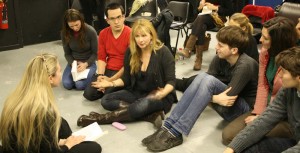 Last week, the Independent featured an article about Benedict Cumberbatch’s upcoming Barbican production of Hamlet. While it acknowledged that “Hamlet stands at the pinnacle of the actor’s art for its emotional and intellectual range”, it focused largely on the 1,480 lines that Cumberbatch will have to commit to memory.
Last week, the Independent featured an article about Benedict Cumberbatch’s upcoming Barbican production of Hamlet. While it acknowledged that “Hamlet stands at the pinnacle of the actor’s art for its emotional and intellectual range”, it focused largely on the 1,480 lines that Cumberbatch will have to commit to memory.
Michael Pennington said: “It is the question that everyone asks at a party. It defines the job; it’s the bare necessity. But it’s still the thing that amazes other people.”
Lenny Henry found writing out the lines of his scene 10 times useful, while most other actors followed the “repetition repetition repetition” method.
Whichever method they chose, all came to the consensus that “the key to mastering lines is not to treat them as lines, but as the ingredients of a character and a story. Grasp the total meaning, and the words will swiftly follow. For Michael Pennington, “You come to know the character that much better. It’s like the engineering of a car: you get to see what goes on under the bonnet. It’s a matter of cosying up the author – you see how they do it, and you develop a feeling for the music of the language”.
Audition Doctor lessons are about getting into the mechanics of the text and to cultivate the linguistic and emotional confidence that comes with spending time living your character. Many Audition Doctor students initially come to Tilly for help with Shakespeare because initially they find it difficult to get to a place where they feel like they are using the language effectively to communicate their character’s intentions.
This week, West End Producer commented on his blog: “One mistake that many new performers make is trying too hard to ‘stand out’ and ‘be different’ so they’re remembered in an audition. Chances are when you do this you stick out for all the wrong reasons, namely for being over the top, desperate, and unnecessary – which is exactly how you don’t want to appear.”
Audition Doctor students have found that sessions have resulted in the right kind of attention at auditions; the work undertaken at Audition Doctor is all about furthering your understanding of the role you are playing, as opposed to yourself.
Bryan Cranston advised young actors: “Know what your job is. About eighteen years ago I had this cognition that I was going into auditions trying to get a job and that simply wasn’t what I was doing. It wasn’t what I was supposed to be doing. An actor is supposed to create a compelling, interesting character that serves the text, you present it in the environment where you audition and then you walk away and that’s it….There’s power in that and there’s confidence in that. Everything else is out of your control.”
Audition Doctor gives students the peace of mind of knowing that they have done all they can to do their job well. Those who come regularly have also noticed that they land jobs simply because the lessons have enabled them to continue their training.
As West End Producer said: “Work leads to work, it really does. That awkward person who directs you in a profit-share show at the Union could one day be running the National Theatre. You never know. And by doing work, you will be surrounded by other actors and meet other creatives – and that’s how you find out about what’s going on and who is casting what, etc.”
The stress on all actors, regardless of whether you are playing Hamlet, is significant and as the Independent article rightly stated: “Every night, [an audience] expects art, practice, training, teamwork and trust to fuse seamlessly into a note-perfect or line-perfect rendition.”
Audition Doctor is popular with professional actors because regular practice and exploration in the sessions takes a large amount of the pressure off.
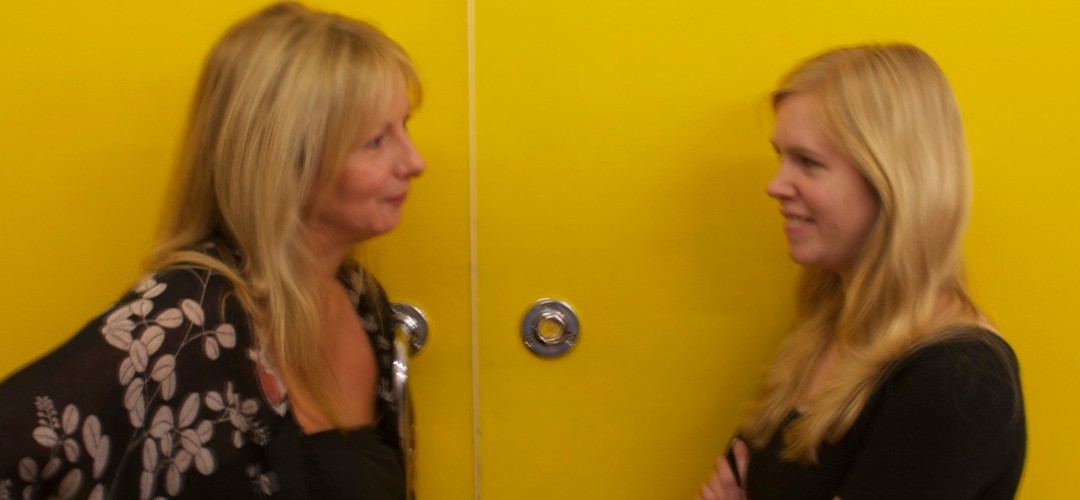
by Bel | Jul 29, 2015 | acting classes, acting classes london, audition classes, audition doctor, auditions, classes for acting, tilly blackwood
 In the Guardian, actors Rory Kinnear and Anthony Sher discussed their different approaches to playing Iago.
In the Guardian, actors Rory Kinnear and Anthony Sher discussed their different approaches to playing Iago.
Kinnear commented: “Nick Hytner’s first instinct was always to steer away from racism and examine that jealousy” while Sher decided from the outset: “We definitely wanted him to be racist.”
What is immediately apparent is that the depth of research and rehearsal that each actor undertook led to nuanced and rich performances that differed hugely.
Kinnear said: “With a lot of Shakespeare’s characters, something seismic has happened to them just before we meet them. Hamlet has lost his father. Angelo jilts Mariana in Measure for Measure. Iago suspects that Othello has slept with his wife. As an actor, you have to know who that character was beforehand in order to understand how they’ve changed.”
From both actors’ accounts, the analysis and quarrying of the play to understand Iago’s mental make-up appears to be extensive; there is a constant questioning and determination to drill deep into the character’s psyche.
Sher said: “Words such as “evil” and “villain”, they don’t mean much to me as an actor. They seem to hark back to a time when we knew nothing about psychology, and I’m far more interested in thinking about those people as damaged in some way that leads to their actions.”
Professional actors and drama school candidates attend Audition Doctor sessions because the environment that Tilly provides allows for a forensic exploration of character. It’s a rare situation where you are not spoon fed any “answer”, but are encouraged to organically find your own way into the character.
Lupita Nyong’o once said of her experience of working on 12 Years A Slave: “Every single role brings with it an ignorance and an insecurity, and so you have to approach it with the same curiosity and humility. I’m always nervous. Doesn’t matter how many times I do this. But I remind myself it’s because I care. Steve [McQueen] would say, ‘Fail and then fail better!’ And that environment was so liberating. It’s not about getting it right. It’s about getting it truthful.”
This is the similar ethos employed at Audition Doctor. Students who come to Tilly’s sessions often land jobs or places at drama schools not because their performances in front of audition panels are so polished and “finished”, but because there is always an honesty, rawness and daring in their acting that is unavoidably watchable.
Kinnear said: “You have to implicate the audience. They’ve got to squirm, not just over what happens [in Othello], but because they did nothing about it. They had all the knowledge – this guy was not to be trusted – and they just sat there.”
Students who have trained at Audition Doctor understand this. Sessions push them to reach these stakes and bring a grit and fearlessness to their work.
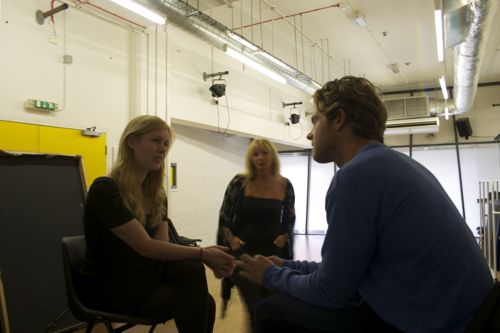
by Bel | Jul 22, 2015 | acting classes, acting classes london, audition classes, audition doctor, auditions, classes for acting
 Speaking of the importance of acting training, Hugh Jackman has said that his experience of drama school was a lesson in “being awake”. He credited his training with giving him the abilities of “being present” and “the importance of listening” – tired stock phrases that are unfailingly trotted out when describing acting, yet are concepts that are the crucial ingredients for a performance that has the power to affect an audience.
Speaking of the importance of acting training, Hugh Jackman has said that his experience of drama school was a lesson in “being awake”. He credited his training with giving him the abilities of “being present” and “the importance of listening” – tired stock phrases that are unfailingly trotted out when describing acting, yet are concepts that are the crucial ingredients for a performance that has the power to affect an audience.
Jackman expanded on the importance of these disciplines: “You do eight shows a week and if you’re not awake that thing is going to be stale by the fifth show and then the rest of the year is going to be horrific and the most turgid experience of your life and for the audience. It has to be as if for the first time.”
The difficulty is that acting as if it were the first time takes a consistent amount of repetition, preparation and practice which is why Audition Doctor has proven essential for both professional actors and drama school applicants.
The type and length of training for each actor obviously varies. As Edward Kemp, Artistic Director of RADA, said in The Stage: “Some students are absolutely ready to go part-way through the third year,” says Kemp. “I was more than happy to release Jessica Raine, for example, in my first year here because she was completely ready. On the other hand, some students get an offer and want to go but it isn’t right for them. We can see they need that final term. It’s too soon and can seriously hold a career back later. I’ve seen it both as a teacher and from the industry end too.”
At Audition Doctor, those that tend to frequently land jobs are those who have regularly attended sessions. The sustained preparation at Audition Doctor sessions means that at auditions, they have the confidence that comes with being more technically experienced.
Kemp also said that he wished someone had told him to “Make more mistakes” when he was starting out. Audition Doctor’s popularity lies in the fact that students not only feel encouraged to make mistakes, but to build on these “failings” and to explore why particular decisions didn’t work as well as others.
Billie Whitelaw once said that actors, herself included, “usually [painted] something on…instead of allowing something to grow from a centre…A lot of that is because there isn’t time to do anything else…but the closest thing I’ve come to using whatever hangs in the middle of one’s diaphragm here has been working with Beckett where I hadn’t eliminated myself but had actually exposed my centre, which is still and full of energy and power, but you can’t act that. It all sounds very pretentious but it is very moving and it does connect.”
Students come to Audition Doctor because they know that sessions push them closer to getting to their own centre and that it gives them the time to really dig into the depths of the character, and consequently avoid giving a one-dimensional performance.
Whitelaw said of Beckett: “He would say “too much colour, too much colour” and what he meant by that was “don’t act”.
Students who come to Audition Doctor find that they come closer to giving the unforced and truthful performances that Beckett spoke of.

by Bel | Jul 15, 2015 | acting classes, acting classes london, audition classes, audition doctor, auditions, classes for acting, tilly blackwood

When Phillip Seymour Hoffman was asked at in
interview at the Golden Globe Awards what advice he would give to those starting out in the acting profession, he said:
“You have to act wherever you can, you can’t be picky. Wherever you get a chance to act – and it might even be an audition room, even if you’re auditioning for something you know you’re never going to get or you might have read it and you might not even have liked it but you know you have to go, if you get a chance to act in a room that somebody else has paid rent for then you’ve been given a free chance to practice your craft. In that moment, you should act as well as you can because if you leave the room or the theatre or wherever you are and you’ve acted as well as you can, there’s no way that the people who watched you will forget it. That was something that someone told me years ago and I think it’s great advice because it’s always about that, it’s always about the work at the end of the day.”
Actors have found that Audition Doctor is a place where they are able to hone their craft to such an extent that they are able to reach the emotional places that the role requires every time. Consequently, auditioning feels like less of a lottery as students are often in control of their performances; performances that have been rehearsed and considered but without any loss of spontaneity or authenticity. Audition Doctor’s popularity relies heavily on the fact that lessons encourage students to become more independent of thought and more confident and adventurous in their artistic judgements.
Hoffman went onto say that the stature and awards that have become attached to his name mean precious little “If I show up to work one day and the work I’m doing isn’t any good, I’m just a guy who’s not acting well. I’d tell that to anyone starting out: take those words and bring them alive. If you do that, something will transpire.”
Professional actors come regularly to Audition Doctor because every lesson takes away the fear of being “that guy”. The intensity of Audition Doctor sessions also strengthens a different muscle – that of developing an acute concentration.
Last week, Mark Lawson wrote an ode to Maxine Peake in the Guardian in which Steven Moffat spoke of Peake’s ability to maintain focus during TV shoots: “Filming can be tedious and repetitive. But even by the seventh take of a scene, she’s still listening to what the other actor says and responding to it, giving you something fresh.”
This is something else that Audition Doctor develops in every one of her students – the capacity to continuously listen and react in the moment and on the line.
“I’ve done 30 hours of television with [Maxine Peake] now,” says Moffat, “and she has never spoken a line of mine wrongly. There has never been an interpretation that jarred, which is very rare. She has this native actor’s intelligence for what you intended or even sometimes to go beyond that and show you something you didn’t know was there.”
Actors who come to Audition Doctor find that sessions strengthen both their gut instincts and their critical faculties, which means that in the audition room, they often surprise themselves as well as those auditioning them.
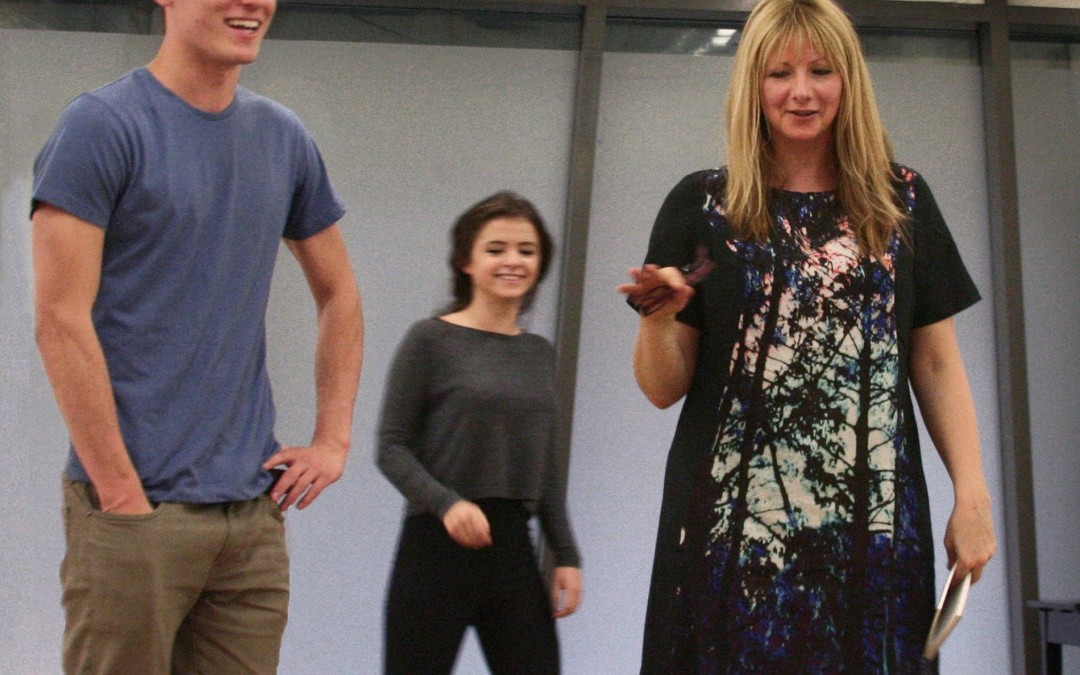
by Bel | Jul 9, 2015 | acting classes, acting classes london, audition classes, audition doctor, auditions, classes for acting
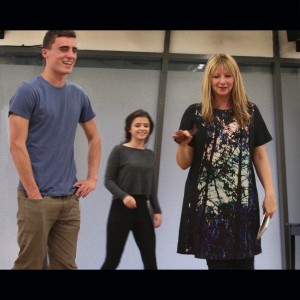 Richard Jordon wrote in The Stage of the difference between good and great acting in The Stage, citing Imelda Staunton’s performance as Mama Rose as an example.
Richard Jordon wrote in The Stage of the difference between good and great acting in The Stage, citing Imelda Staunton’s performance as Mama Rose as an example.
“When you see great actors at work, you realise it is in the little touches they instinctively find in their own technique which grounds their performances, thus propelling them forward to another level, becoming both visceral and memorable. In any such instance you also understand what is meant by the expression ‘living the performance’.”
Staunton has made clear that the road to this calibre of work, however, is one that littered with years of practice and, most importantly, failings; failings that continued well after drama school – the acknowledged place where actors are encouraged to be imperfect and experiment without any career-damaging consequences.
Unlike for today’s drama school graduates, Staunton’s route into repertory theatre is one that is no longer possible: “I did all leading parts and I’d much rather be doing that than standing at the back at the RSC watching other people do it. I’d rather do it, make a mistake and do it again.
I know it sounds obvious but [rep meant] you [were] allowed to learn from your mistakes. You [were] allowed to hone your craft. I didn’t come out of RADA fully formed, I don’t know even if I am now…I think that people should be allowed to fail, change and form as actors.”
Audition Doctor has proved indispensable for drama school candidates, recent graduates and professional actors precisely for this reason. The constant urge for change, exploration and betterment is a sentiment shared by all actors regardless of experience.
Mark Lawson asked in an interview with Staunton: “People say that at drama school, the way you look, the kind of physique you have leads to quite early stereotyping – whether you’re a leading actor or a character actor. Did you feel like you were being pushed into a certain direction?”
Staunton responded: “No because at drama school, you get to do everything. It’s when you leave drama school that the real world kicks in. So at drama school you can play someone who’s 70, someone who’s 17, but when you come out and you’re in your twenties, you can only play those sort of rolls.”
This is why recent graduates find Audition Doctor an important stepping stone in their careers; the variety of roles available in the industry itself is far narrower than at drama school. Consequently, students find that Audition Doctor is where they can differentiate themselves and improve their craft by giving them the chance that Staunton said repertory theatre gave her – doing instead of watching and failing without disastrous consequences.
Fiona Shaw recently spoke of directing Britten’s The Rape of Lucretia in The Telegraph. In rehearsal, she said encouraged her cast “to dig into their own sub-conscious minds and make their own decisions about what is happening, without explaining it to anyone else. Secrets can be so powerful in the theatre.”
As at Audition Doctor, sessions are about exploration and decisions. Students have found that the results of the sessions drive them nearer to “living” their roles and give them an real understanding of the difference between when they are merely good and when they are bordering being great.
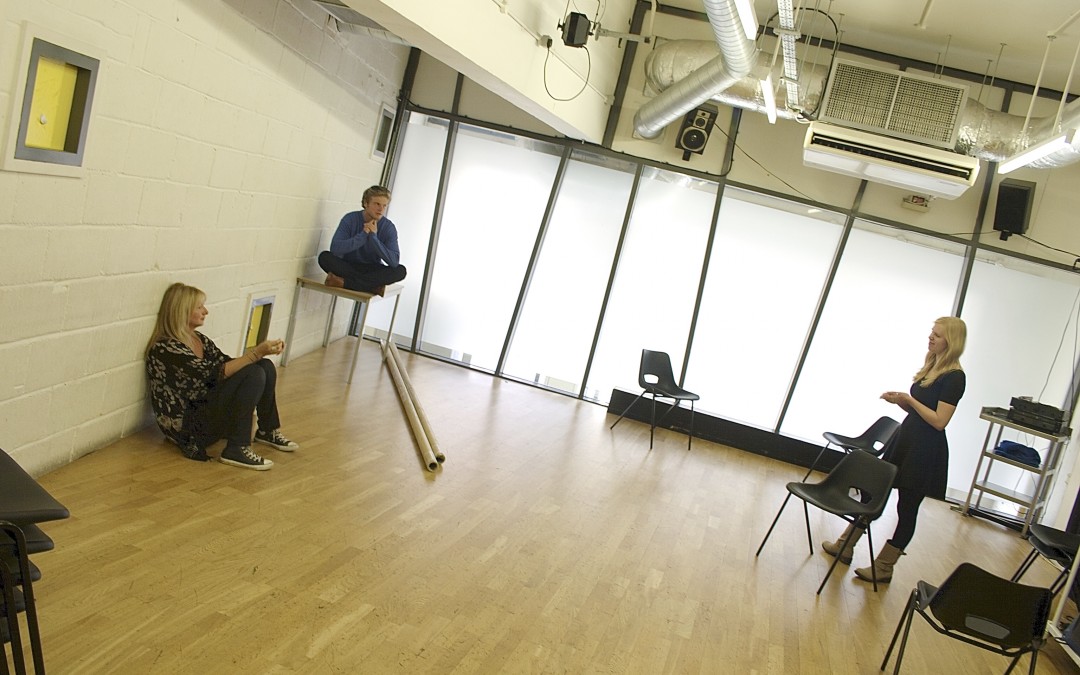
by Bel | Jun 30, 2015 | acting classes, acting classes london, audition classes, audition doctor, auditions, classes for acting, tilly blackwood
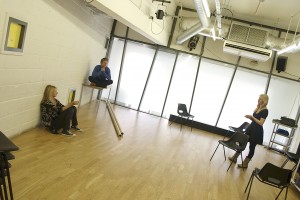 In an interview for Film 4, Tom Hiddleston said: “I call acting 3D anthropology or archeology; in the way that you’re out there digging away at the mine shafts of the collective emotions of human beings – in the present and the past. Actors have to bring back their findings and put them in the glass case that is the [performance].”
In an interview for Film 4, Tom Hiddleston said: “I call acting 3D anthropology or archeology; in the way that you’re out there digging away at the mine shafts of the collective emotions of human beings – in the present and the past. Actors have to bring back their findings and put them in the glass case that is the [performance].”
The process of excavating emotions and exploring which best suits certain interpretations takes time and regular commitment. This is why both the professional actors and drama school applicants that come to Audition Doctor attend regular sessions.
As Matthew McConaughey said: “When it’s wonderful, when it works, you go into a scene and you have 16 different ways of telling the truth. When you’re stuck, sometimes you’re just trying to protect yourself from telling a lie. Sometimes you just feel like you’re just connecting the dots and that’s all I really can do. I don’t have the song.”
Audition Doctor is popular because the work undertaken in the sessions has time and time again helped unstick actors in auditions. Students who come to Audition Doctor give themselves the opportunity for studied preparation and the gift of having thoroughly explored the idiosyncrasies and motivations of their character.
Michael Fassbender commented: “My preparation is the same whether it’s for a $150m film or a $1.5m film or whatever, I’ve got a lot of homework to do. I’ve got to be well-equipped when I come onto the floor and I want to come onto the floor with ideas and I also want to be well prepared so I have the ability to have the freedom to explore any avenue on the day.”
Audition Doctor students will attest that sessions afford them an artistic freedom that sets them apart from others who are auditioning. Students always enter with a spectrum of objectives, intentions and opinions on a character. The flexibility and understanding that characterises an Audition Doctor student is palpable in the auditioning room, especially when being redirected.
Aside from giving students the capability and confidence of making bold and unorthodox choices, Audition Doctor also provides actors with a safety net. The level of preparation and dissection of not only the role but the play itself means that if for whatever reason you falter, you know that, as an actor, you are in possession of a kind of parachute.
For McConaughey, he finds something in the script that is “a real personal politic. It blankets an entire performance and it also gives me something to fly with, something that I can have in my pocket if I get in trouble in a scene. I can go “well I know this man is about this. I know he needs this – throughout – before this story ever started and after this story goes away.”
He described his process now: “I try to get the guy’s monologue then I can get the dialogue.” Similarly, Audition Doctor sessions mainly focus on individual speeches. The honing and moulding of their voice in a particular speech gives casting directors or drama school audition panels the knowledge that they will be able to carry this authenticity through into the wider context of the play.
Students who come to Audition Doctor gain success because the level of research and experimentation undertaken in the sessions mean they never deliver an “act by numbers” performance that merely joins the dots.

by Bel | Jun 23, 2015 | acting classes, acting classes london, audition classes, audition doctor, auditions, tilly blackwood
 In an interview, Jack Lemon spoke of his experience working on Glengarry Glen Ross and working with David Mamet’s text:
In an interview, Jack Lemon spoke of his experience working on Glengarry Glen Ross and working with David Mamet’s text:
“We had about two and half weeks rehearsal…if we had not had it, we would’ve all been fish that were drowning. As great a writer as Mamet is, I don’t think there’s a playwright in the world whose lines are as difficult to learn. They are unique, slightly off. The whole trick is to make them sound like normal conversation…He has another thing in common with other great writers such as Billy Wilder and Neil Simon and that’s what he doesn’t write. He never writes too many words and every single one of those “if, ah, ums” is written…When you forget one it’s like dropping a whole sentence – the whole rhythm goes. David has his own rhythm, each character has his own rhythm and each actor has to find that rhythm.”
For many of Audition Doctor’s students, sessions are focused on finding this rhythm. Similarly to Mamet, Shakespeare is a writer whose characters literally speak in a rhythm. Shakespeare is unavoidable for those who come to Audition Doctor to prepare for drama school auditions. Audition Doctor sessions take the fear out of performing Shakespeare by encouraging students to become comfortable with iambic pentameter. Eventually, the language becomes a tool in their arsenal and students find that the rhythm and syntax actually become an indispensable aid in communicating thought and emotion.
Lemon went onto say of rehearsing for Glengarry Glen Ross: “For the first couple of weeks you go absolutely bananas, not only trying to remember the lines but to make them natural so that you’re not just listening to cues or thinking of your lines but really behaving as a character truly would in life and that is as I am now. I’m not thinking of the words, I’m thinking of the thought I’m trying to get across. When you’re really in the scene, that’s what an actor does.”
Those who come to Audition Doctor regularly over a period of time usually find that finding the thought on the line becomes easier than those who leave extended gaps between lessons. Like with many other aspects of acting, routine and rigorous practice is the key to getting to the emotional and intellectual space the role requires more effectively.
Julie Walters recently described the freedom of working with Stephen Daldry: “He’d just say let’s shoot another scene here now. Let’s say they’re in this room and this happens. We’d just do it. I just love that.”
Audition Doctor’s students, whether professional actors or drama school applicants, all benefit from a similar mode of direction. The spontaneity of the sessions means that actors have the freedom to experiment without too much over-thinking.
Benedict Cumberbatch recently spoke of what it’s like for an actor when there is the right chemistry between you and a director: “It’s a great thing to have rehearsals and to know that you’re coming at it from the same point of view. It just means you can be more free, you can play and enjoy it and I think that’s what elevates good work to great work or really daring work.”
At Audition Doctor, students will attest that Tilly undoubtedly creates this possibility.

by Bel | Jun 16, 2015 | acting classes, acting classes london, audition classes, audition doctor, auditions, classes for acting, tilly blackwood
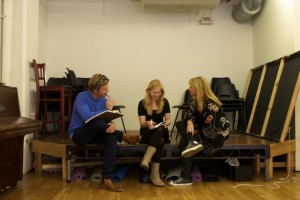 In The Stage, Judi Dench spoke about her constant “fear of everything” as an actor – fear “ of not fitting into that slot, of not fulfilling that piece you are asked to do. I get more frightened [the more I do]. The more you do, the more frightening it is anyway as you are much more aware.”
In The Stage, Judi Dench spoke about her constant “fear of everything” as an actor – fear “ of not fitting into that slot, of not fulfilling that piece you are asked to do. I get more frightened [the more I do]. The more you do, the more frightening it is anyway as you are much more aware.”
Fear plays an undeniable role for most during auditions, however, at Audition Doctor, much of that fear is alleviated through the progressive confidence that each student gains with each session. Both professional actors and drama school applicants have found that failure is not discouraged at Audition Doctor.
This echoes Colin Farrell’s interview on the BAFTA website where he insisted: “You have to be allowed to fail as an actor because it’s very easy to play it safe”. Like drama school, Audition Doctor sessions are where you are encouraged to take risks and feel safe in doing so.
Audition Doctor sessions involve both discussion as well as performance. The choice of speech always takes perhaps longer than expected. However, Geoffery Colman, Head of Acting at the Central School of Speech and Drama, recently wrote in The Actor’s Handbook:
“The choice of speech preoccupies many candidates, who unearth an astounding range of two minute extracts – often material inappropriately sourced online and disallowing any creative placement of their own heart and mind. And oh, how audition candidates obsesses about contrasting this, that or the other! Just select an extract from a play that is simple, clear, unfussy and – most important of all – one that allows you to enter its world without a fight (and most certainly without the need to show that you are entering it). People bring much worked-upon accents, props, shouts, peculiar moves, glances and screams as though volume alone will do the deal. This should be avoided.”
Both Benedict Cumberbatch and Hugh Dancy spoke of what they looked for in a character in interviews for BAFTA. Cumberbatch stated: “When I look for a role…I think about how important is this character. Not how big but how important, how interesting is this going to be to watch and how interesting is it going to be to bring to life.”
Dancy mentioned: “I suppose I’m looking to be intrigued in some way. Maybe have a question raised that isn’t immediately answered for me. It’s not often necessarily the case that you realise that as you’re reading something. It might be that over the following few days it’s percolating.”
Auditioning, particularly for drama schools, is a long process and you can live with the speeches for up to 6 months. The speeches chosen have to be simultaneously comfortable yet demanding – both emotionally and intellectually. Audition Doctor sessions give you the time and space to fully inhabit the character and really make it your own.
This originality and individuality is what drama schools are looking for because as Dench noted in the same interview: “Don’t let’s fool ourselves – don’t let’s stop for a minute to not remember that right here at my shoulder is someone standing, and behind her is someone else and someone else.”

by Bel | Jun 9, 2015 | acting classes, acting classes london, audition classes, audition doctor, auditions, classes for acting, tilly blackwood
 In an article for Ideastap, Caroline Leslie, Head of Acting at LAMDA, advised those auditioning to “really get inside the mind of your character – think about what they hide and show of themselves, and how they think other people think about them.”
In an article for Ideastap, Caroline Leslie, Head of Acting at LAMDA, advised those auditioning to “really get inside the mind of your character – think about what they hide and show of themselves, and how they think other people think about them.”
“Choose a piece and a character that fascinates you. You can really tell when someone has chosen a piece that they connect to and auditions almost always work better if the actor has chosen something they love.”
At Audition Doctor, choosing the speech for you is a lengthy yet integral part of the process. Julie Walters has said “In a role, I’m mainly looking for truth and integrity. No matter what it is, even if it’s a comic cameo, there’s still got to be a truth behind it. And I’m not just looking at my character, I’m looking at the whole thing.”
Audition Doctor encourages you to pick roles that are challenging and beyond your reach, however, that will be fully grasped and inhabited by the end of the course of Audition Doctor sessions.
Walters went onto advise: “You want to know who that person is…so I will do my own rehearsals as if I were rehearsing with a director but on my own.” While the line-learning process is often done alone, many professional actors come to Audition Doctor because they desire a more collaborative rehearsal process. Rehearsing alone can be counter-productive if there is no one to tell you which of your interpretations works better and why.
Andrew Buchan recently advised actors when learning lines to “get it in your body, don’t just sit on the edge of your bed because they won’t go in, get it in your muscles.”
Many actors and drama school applicants come to Audition Doctor because they want to get a performance into their muscles, see it up on its feet in front of a professional and to also strengthen their ability to take and act on direction.
Walters said: “I don’t like being over-directed, some people feel that they need to be seen to be directing…All you have is your instincts and they can be interfered with sometimes rather than nurtured and then you begin to doubt them.”
Audition Doctor’s popularity relies on the fact that Tilly only ever strengthens your instincts and simultaneously coaches you to harness any nerves into a truthfully sustained performance.
Audition Doctor sessions, however, are not for those who are unwilling to take risks. In the same interview as Walters, Tamsin Greig urged young actors “to be more brave about failing”.
It is in this willing to not be perfect and to dare to expose her vulnerabilities that Julie Walters has featured in an article entitled “Julie Walters – a heroic talent” in which it says: “She disappears into her characters and gives them hearts so loud you can hear them beating.”
Audition Doctor students have found that sessions have pushed them to do the same and have made them braver and more astute actors as a result.

by Bel | Jun 3, 2015 | acting classes, acting classes london, audition classes, audition doctor, auditions, classes for acting, tilly blackwood
 The Stage asked Maria Friedman to give advice on auditioning: “Preparation, preparation, preparation. Bring yourself, not someone else, to every audition- you can’t hide you, so get to know yourself and what it is you have to offer; and know that is your three minutes – so don’t allow something else to dominate it, whether it’s your fear, or travel on the train – and use them. Come in and enjoy yourself and do the performing you wanted to do all your life.”
The Stage asked Maria Friedman to give advice on auditioning: “Preparation, preparation, preparation. Bring yourself, not someone else, to every audition- you can’t hide you, so get to know yourself and what it is you have to offer; and know that is your three minutes – so don’t allow something else to dominate it, whether it’s your fear, or travel on the train – and use them. Come in and enjoy yourself and do the performing you wanted to do all your life.”
Aside from the depth of preparation that each actor achieves at Audition Doctor – something that is difficult to achieve alone – Audition Doctor’s popularity lies in the fact that work is only done on speeches that enhance your particular ingenuity, individuality and boldness. Audition Doctor sessions, particularly for drama school applicants, are as much about rehearsing monologues as figuring out the kind of actor you are, working out your strengths and weaknesses and finding it within yourself to identify with a spectrum of roles.
Similarly to the work done Audition Doctor, Phillip Seymour Hoffman said: “The first thing I looked at was how were they similar to me and how were they different to me. I had to cover those bases…so I could create this person who was not living my life but living someone else’s life.”
The best speeches to work on are those that provoke an expansion of empathy or understanding.
Benedict Cumberbatch said: “As an actor you have to find a level of empathy and understanding of your character and I think to carve out anything that’s two-dimensional, whether a character is thumbs up or thumbs down, I find that limiting…I want to find out the three-dimensionality, what motivates them, what’s human about them. That’s not to soften the edges at all, that’s purely because it’s near to a human experience so that there’s some common ground for audience to understand the character’s motivation because then it isn’t something that’s ostracised from us, something that’s telling us how to feel and think. I personally get bored watching that type of work and bored doing that type of work.”
The work that actors undertake at Audition Doctor forces them to go beyond the parameters of their perceived capabilities. Imagination and craft are exercised and pushed to places which offer up a whole, truthful and bold performance.
Lisa Dwan spoke in the Guardian about her role in Beckett’s Not I : “Do you know what’s so gorgeous about this role? I’m not a woman, I’m a consciousness. It’s stretched me intellectually, emotionally. To get out of my blonde hair and body and be this thing, I can’t explain the gift.”
Roles that allow actors to experience this are few and far between, however, taking the time to choose the speech that gives you the opportunity to challenge yourself is essential. Once chosen, Audition Doctor sessions encourages actors and drama school applicants to get out of themselves and authentically live out the role.

 Last week, the Independent featured an article about Benedict Cumberbatch’s upcoming Barbican production of Hamlet. While it acknowledged that “Hamlet stands at the pinnacle of the actor’s art for its emotional and intellectual range”, it focused largely on the 1,480 lines that Cumberbatch will have to commit to memory.
Last week, the Independent featured an article about Benedict Cumberbatch’s upcoming Barbican production of Hamlet. While it acknowledged that “Hamlet stands at the pinnacle of the actor’s art for its emotional and intellectual range”, it focused largely on the 1,480 lines that Cumberbatch will have to commit to memory.














